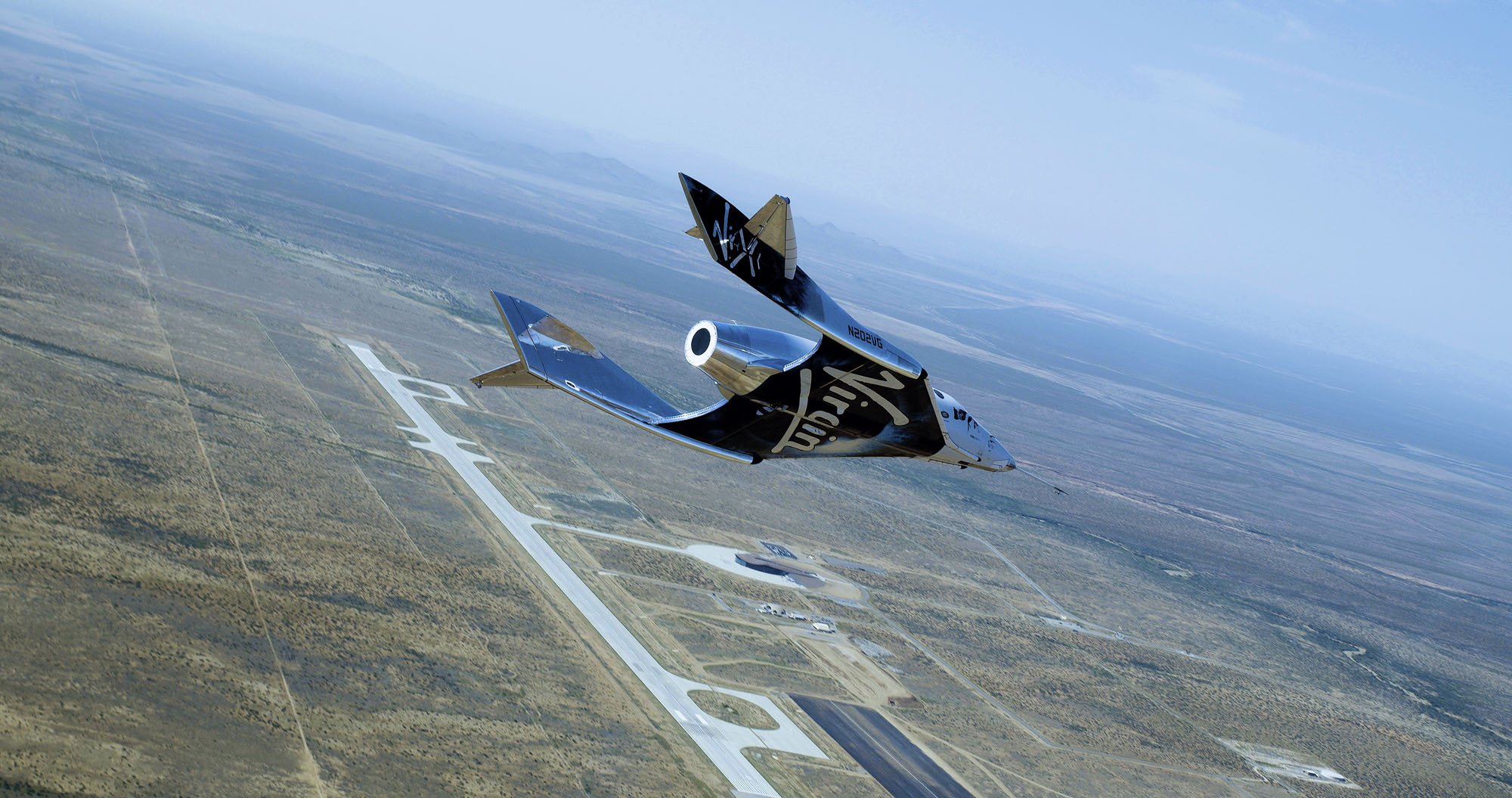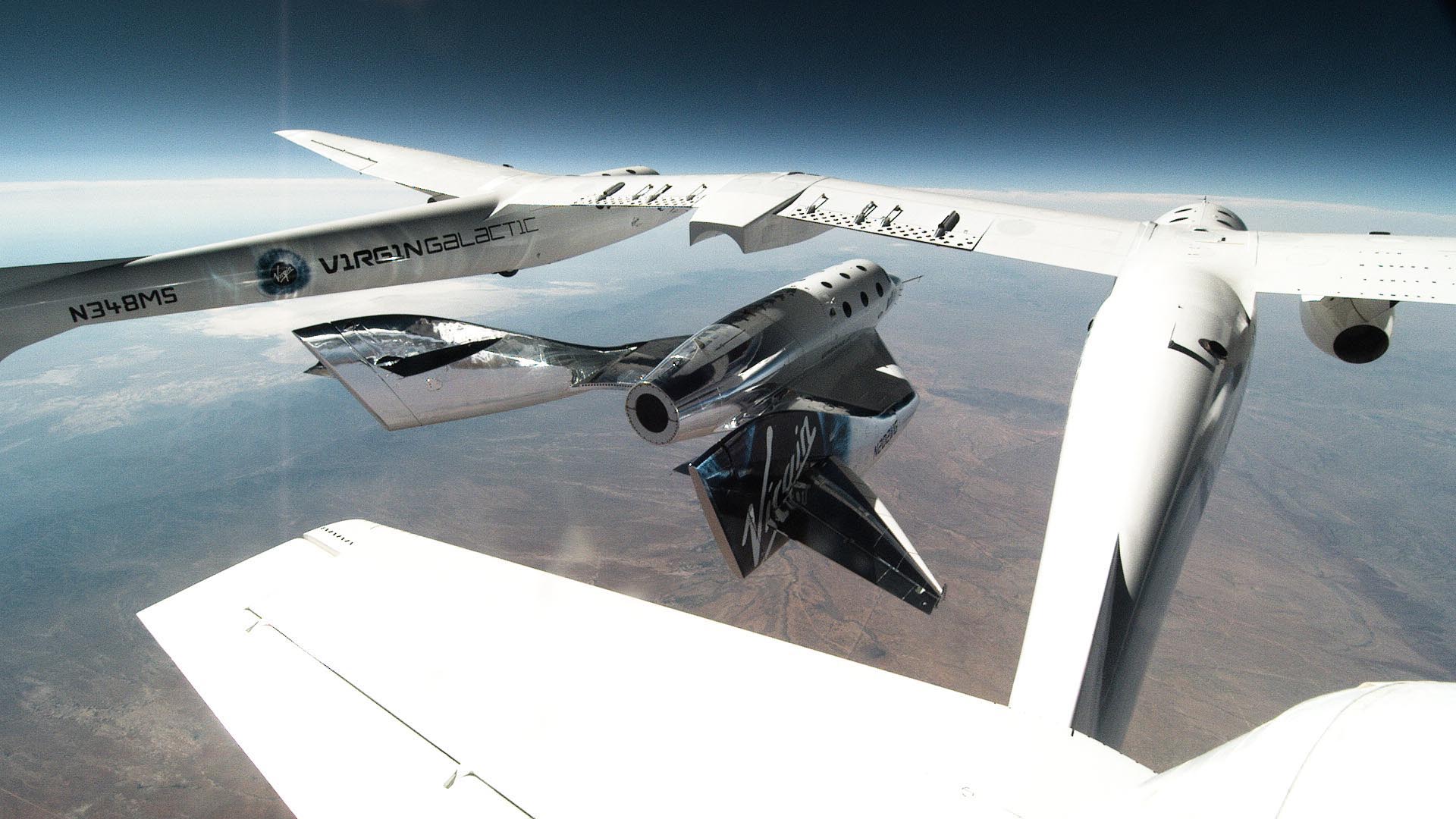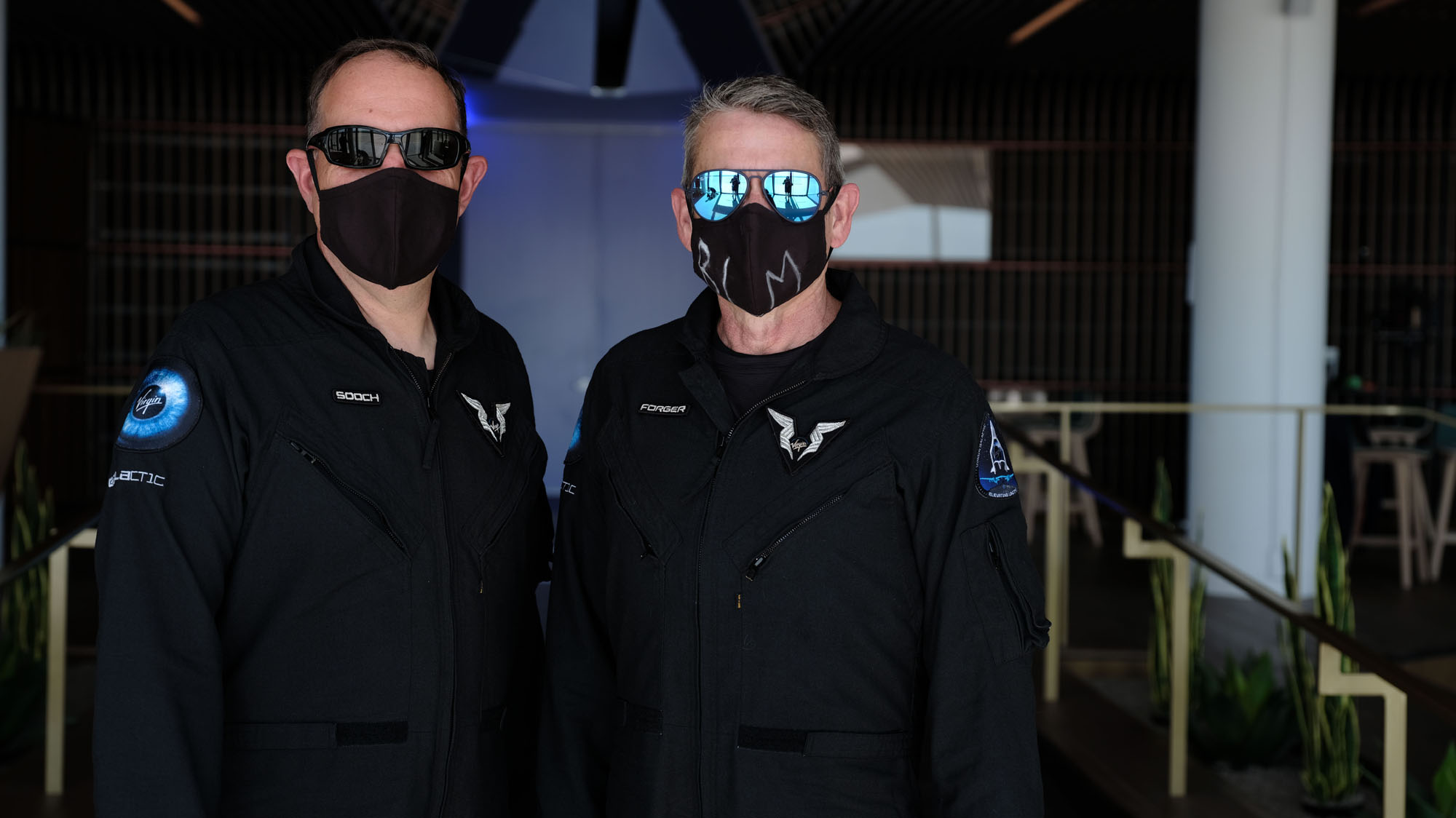Virgin Galactic's SpaceShipTwo aces 2nd glide flight over Spaceport America
It flew higher and faster in the skies over New Mexico.
Virgin Galactic successfully completed a second test flight of its SpaceShipTwo space plane from the company's New Mexico spaceport on Thursday (June 25), bringing the company one step closer to its goal of providing private spaceflights for paying customers.
The suborbital space plane, called the VSS Unity, glided down to Spaceport America from an altitude of 51,000 feet (15,500 meters), where it was released from its WhiteKnightTwo carrier plane, called VMS Eve. On board the VSS Unity were two pilots, Mark ‘Forger’ Stucky and Michael 'Sooch' Masucci, who are both commercial astronauts. Piloting the VMS Eve were Nicola Pecile and CJ Sturckow.
While Virgin Galactic has completed several unpowered glide test flights of the VSS Unity before, this is only the second time that the test happened at Spaceport America. The VSS Unity's first flight from Spaceport America was on May 1; previous flights took off from Mojave Air and Space Port in southeastern California.
Video: See Virgin Galactic's SpaceShipTwo soar over Spaceport America
Related: How Virgin Galactic's SpaceShipTwo works (infographic)

"This glide flight, flown at higher speeds, allowed the team to continue to evaluate systems and vehicle performance in advance of future rocket-powered space flights from the company’s new operating base in New Mexico," Virgin Galactic said in a statement.
"Flying VSS Unity in glide configuration at higher speeds enables certain vehicle systems to operate close to the environment seen during phases of rocket boost on a spaceflight."

During the flight, the VSS Unity reached a glide speed of Mach 0.85 after it was released from the mothership, and the pilots executed a series of maneuvers "to gather data about performance and handling qualities while flying at higher speeds," Virgin Galactic said. "This data will be verified against similar maneuvers that were performed in the previous glide flight to enhance aerodynamic modelling."
Get the Space.com Newsletter
Breaking space news, the latest updates on rocket launches, skywatching events and more!

Virgin Galactic is currently selling tickets for commercial flight on board SpaceShipTwo for $250,000, and the company has sold more than 600 tickets. It is not clear exactly when the first commercial flights will begin. The company has said that flights could begin as early as this year.
- Photos: Take a tour of Spaceport America
- Virgin Galactic: Richard Branson's space tourism company
- Amazing Virgin Galactic launch video shows black sky, blue Earth
Email Hanneke Weitering at hweitering@space.com or follow her @hannekescience. Follow us on Twitter @Spacedotcom and on Facebook.
OFFER: Save 45% on 'All About Space' 'How it Works' and 'All About History'!
For a limited time, you can take out a digital subscription to any of our best-selling science magazines for just $2.38 per month, or 45% off the standard price for the first three months.
Join our Space Forums to keep talking space on the latest missions, night sky and more! And if you have a news tip, correction or comment, let us know at: community@space.com.

Hanneke Weitering is a multimedia journalist in the Pacific Northwest reporting on the future of aviation at FutureFlight.aero and Aviation International News and was previously the Editor for Spaceflight and Astronomy news here at Space.com. As an editor with over 10 years of experience in science journalism she has previously written for Scholastic Classroom Magazines, MedPage Today and The Joint Institute for Computational Sciences at Oak Ridge National Laboratory. After studying physics at the University of Tennessee in her hometown of Knoxville, she earned her graduate degree in Science, Health and Environmental Reporting (SHERP) from New York University. Hanneke joined the Space.com team in 2016 as a staff writer and producer, covering topics including spaceflight and astronomy. She currently lives in Seattle, home of the Space Needle, with her cat and two snakes. In her spare time, Hanneke enjoys exploring the Rocky Mountains, basking in nature and looking for dark skies to gaze at the cosmos.










